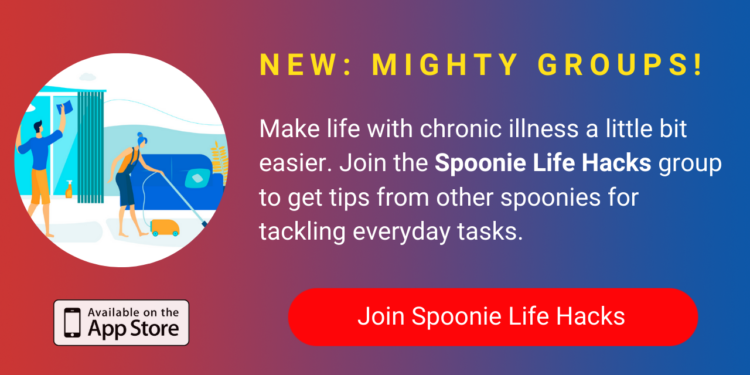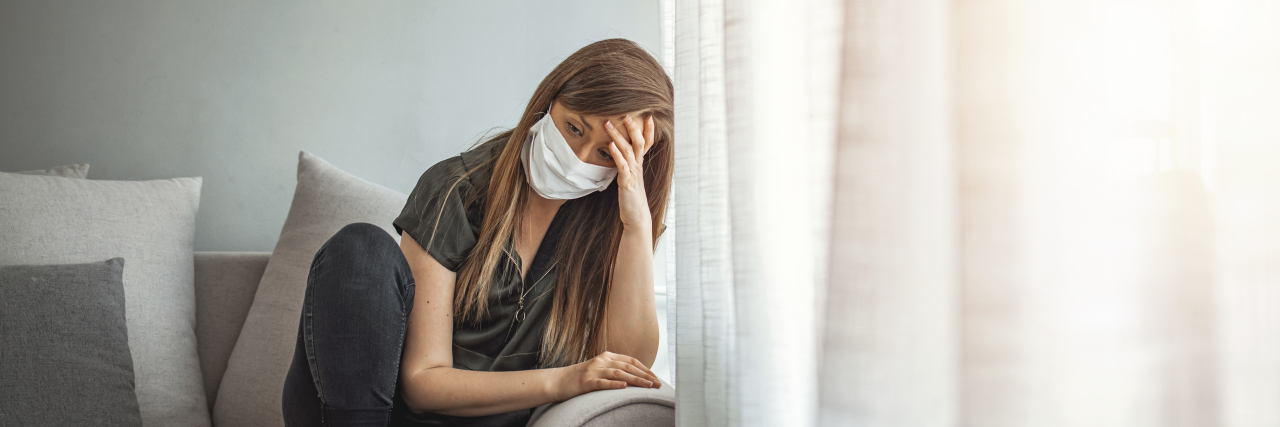My 7-year-old asked me this weekend how the newest stay-at home order will affect us. “It won’t be much different,” I said. “Nothing changes for you. We’ve been on lockdown since March.”
For the most part, our lives have been consistently locked down, with very limited interaction outside of our own home, the four of us staying put and keeping as socially distant as possible due to my immunocompromised system and medications. We had a few hard discussions in the early days of the pandemic and set the stage for our kids — without an immune system for Mommy, it isn’t safe for our family to do anything but stay stringent. It has been harder on some days and easier on others. The harder days have reminded me some of the people I love most have either little consideration or little understanding of what it means for those with chronic illness to ride this out. Many in my own circle have continued vacationing, gathering and sharing dinner tables without realizing their actions further encourage the length of this pandemic and essentially ensure my continued quarantine (and that of many, many others).
While there have been a number of lessons I’ve faced throughout the past year (many humbling things I’ve had to face about my own shortcomings), there are two key points that have helped me deal with the grief of having to step away from people I love to stay safe.
1. On the days I’m leaning into my own hurting, I can find change in reaching out to others who are struggling. Together, we find peace in the shared experience, and in the best cases, a new friendship blooms with the understanding we are both sharing loss.
2. It is imperative I use resources where they are best served. As we are all working with limited finances, time, joy, etc., using these to make a difference is reliant on our own ability to read others. If you are trying and hitting a wall — stop. There are people in need of our gifts. I believe we must spend what we have to give where people welcome the contribution.
Not only as someone who is immunocompromised, but also as a mother, an employee, an activist — never before have I heard so many stories of love and suffering side by side. The mix of joyful compassion and anxiety swelling up in us builds a layer upon which we can identify common ground. This is the soil of new relationships, of stronger bonds. We can recognize our own vulnerability and share in that space whatever makes things easier. Sometimes, this is sending a meal to a friend who is hurting, a text on a rough day, remembering to check in on a milestone date or after an appointment. 
In wearing my own grief, I have been forced to pull back my comfortable layers and ask: Who am I when I am called to action for others? It is a rallying cry, a request to push past and be more of myself. I can be a better patient advocate for someone who needs me, a more present friend (albeit via Zoom or text), a warrior for someone else who needs that extra strength. Similarly, I am reaching out for help from others on the days it hurts too much to put one foot in front of the other. And they have shown up, the two of us holding together by pressing our figurative body weight in and creating that supportive arch.
Whatever the future holds, I want to be able to answer my grandchildren one day when they ask me where I was and what I was doing during these times. I want to answer them honestly, with dignity and tell them I learned to listen to others, to find the hurting, to locate my own will to help and push past my limitations. I want to tell my grandchildren we learned to sacrifice in consideration of others.
So, I hear you – mother of four, supporting kids and parents, working full-time and still showing up.
I hear you — radiant friend on dialysis treading water and fighting every day for yourself and your family and your students, as well as your own individual care.
I hear you – mom, widow, friend raising two daughters alone, teaching your pod, trying to stay optimistic and planning for an uncertain future.
And where am I today?
I am motivated now more than ever to be less “back to normal” and more a woman of the present moment. To represent the chronic illness community authentically by not denying my needs for accommodations, by speaking openly about why our voices should be heard (especially now that we are in our own homes and not able to sit at the table with others), by being there when you need me.
I will be here.
Today, tomorrow, next year. Because in a time where we wear our own sadness like the albatross, the only way through the struggle is together.
Getty image by dragana991

